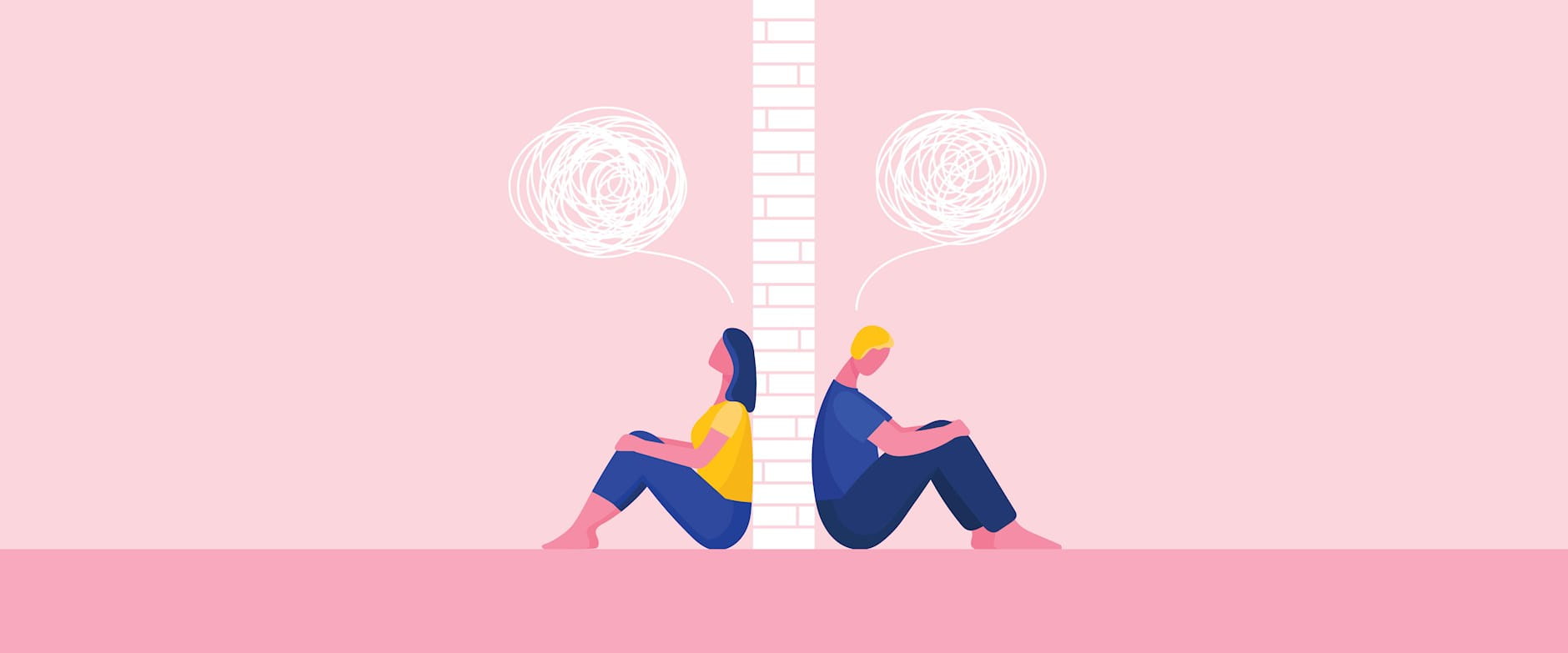The trick to maintaining human relationships is knowing how to resolve conflict, and an abundance of research has shown that an apology is a powerful tool for reconciliation.
But some disputes never get resolved, such as close friendships that collapse over a mundane squabble, or radio silence between family members that lasts for decades. Chicago Booth’s Shereen Chaudhry and Ludwig Maximilian University of Munich’s Valeria Burdea identify a commonality in many of these fights: mutual blame. Their study suggests that when conflicts involve mistakes on both sides, neither person wants to say sorry first, creating a notable barrier to resolution.
Consider the hypothetical example of Fran and Saul, colleagues attending a work conference who are booked on the same flight home and decide to carpool to the airport in Fran’s rental car. When Fran goes to pick up Saul, she waits 20 minutes for him to pack his bag at the last minute. Then on the drive Fran thinks she can navigate to the airport without GPS, and they end up on a 20-minute detour. By the time they get through airport security, Fran and Saul’s plane has left.
They missed their flight thanks to both parties’ mistakes, and each person owes the other an apology. According to the research, however, both Fran and Saul might be hesitant to apologize first, worried the other person might not return the apology. This would lead to a stalemate, where neither person apologizes even though both are willing.
Chaudhry and Burdea ran a series of experiments testing hundreds of participants’ behavior in simulated mutual-blame scenarios. Some of the experiments manipulated arguments in the lab via computer games. In one instance, participants played games that involved allocating money and were sometimes given incentives to keep more money for themselves rather than share. Then they were told about the other person’s choices and given the opportunity to send a message to their game partner, knowing that their partner would have the same opportunity.
Across the experiments, the researchers find that participants who anticipated offering an apology on average expected to feel positive if they got one in return, and negative if they didn’t. And this is not about wanting forgiveness: they expected to feel better about getting a return apology than about being forgiven. They were therefore much more likely to apologize first if they thought it was very likely they would get an apology as well, but they were more likely to apologize second if they wanted to eliminate the possibility of not getting an apology in return.
Sorry, not sorry
In a disagreement in which blame lies on both sides, should the parties apologize? For many in that situation, the answer seems to hinge on whether they’ll get an apology back. In an experiment, participants said that if they offered an apology and didn’t receive one in return, they would feel worse than if the other person also apologized. They even preferred a return apology over forgiveness.
The risk of apologizing first comes in losing the flexibility to offload responsibility, the researchers surmise. If Fran apologizes to Saul and he doesn’t apologize back, Saul leaves room to present an interpretation of what went wrong that differs from Fran’s. In that case, Fran appears to take all the blame, which could both feel unfair and have other costs. “A lone apology transforms the relationship between the two individuals to one of victim-and-transgressor, putting the power to restore trust, as well as the right to punish, in the hands of the counterpart who didn’t apologize,” the researchers write. The person who has already apologized then forfeits the right to retaliate and may take punishment from third parties who only hear one version of events.
An apology, then, is crucial to establishing relative blame. How much of the responsibility does Fran accept for their situation? If she feels entirely to blame for the missed flight, she won’t have much trouble admitting that. But if she believes the two share the blame, she wants to know that any apology she gives will be met with an apology back. But she can’t be sure: Will Saul reciprocate and admit any wrongdoing? Without this key answer, Fran might say nothing, leading to an impasse.
Such mutual-blame conflicts can go beyond minor disputes. To test if their findings hold in higher-stakes scenarios, Chaudhry and Burdea invited participants in one experiment to imagine apologies between nations, focusing on whether the United States should apologize for dropping atomic bombs on Hiroshima and Nagasaki, and likewise whether Japan should apologize for attacking Pearl Harbor.
When they asked participants (who were American) whether US president Joe Biden should apologize to the Japanese prime minister for the 1945 nuclear attacks, the participants were more likely to support an apology if it was clear that the Japanese leader would apologize for the attack on Pearl Harbor. (The researchers had participants self-report their political parties, and find that Republicans were much less supportive of an apology than Democrats.)
This collection of studies tells us that “people’s willingness to apologize first often depends on what they think the other person is going to do,” Chaudhry says. And if both parties in an argument miscalculate what the other will do, that can easily lead to apology stalemates, the researchers suggest.
Shereen Chaudhry and Valeria Burdea, “I’m Sorry If You Are: The Risk of Apologizing First,” Working paper, November 2022.
Your Privacy
We want to demonstrate our commitment to your privacy. Please review Chicago Booth's privacy notice, which provides information explaining how and why we collect particular information when you visit our website.
